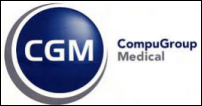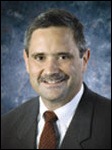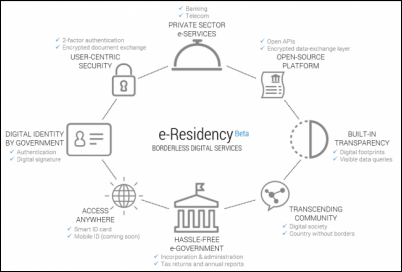Re: Oracle's Clinical AI agent. It's so real that at the 1:34 mark of the video, they decided to use…
Monday Morning Update 2/23/15
In Canada, an IBM/Deloitte-led, $670 million British Columbia Cerner EHR project is delayed with no new timelines announced. Reports say arbitration over a software dispute is a possibility.
Reader Comments

From Jude Lawless: “Re: 23andMe. They’re excited to receive FDA approval to publish ONE new genetic health report. At this pace, I’m not sure what they’re hoping to accomplish for individuals. For researchers, I’m sure that all their genetic information plus all of their surveys are accomplishing a great deal.” The FDA has loosened its rules covering direct-to-consumer carrier screening tests, allowing 23andMe to market its test for Bloom syndrome. It’s a rare condition, but the company makes money based on (a) the number of people who want to find out if they carry it, and (b) the value of selling the genetic data of its opt-in purchasers to drug companies.
HIStalk Announcements and Requests

Poll respondents are evenly split on whether biometric security should be mandatory for protecting PHI. Glen commented that biometric consensus standards are inconsistent, while Clark added that infection control solutions make smart cards and RFID better solutions in clinical areas. New poll to your right or here: why is Epic creating an App Exchange? Click the “Comments” link after voting to explain yourself.

HIStalkapalooza registration has closed and I’ll send out invitations shortly. Every year I get dozens of complaints about the event long before it happens, with these being the most common (and all of which I’ve already heard for 2015):
- “I read HIStalk religiously and didn’t see the signup notice.” I ran the large graphic and notice several times starting January 29 and ending February 18, so anyone who reads HIStalk even casually couldn’t possibly have missed it.
- “My boss is an industry big shot and you can’t turn him away if he shows up uninvited.” I can, and in fact, I will. It’s not that hard for even completely self-absorbed executives to put their name on the list or order some flunky to do it for them. Attendance is nobody’s entitlement.
- “We’re an HIStalk sponsor and didn’t think we had to register our people individually to attend.” I made it clear that every person who wants to attend needs to sign up. The names and emails of the chosen folks populate an Excel worksheet row that is then turned into a badge (and hopefully a door-checked barcodes if I can work that out). I’m still explaining eight years after the first event that this isn’t just a come-one, come-all party – sponsors foot the bill for around $200 per attendee and we can’t just throw open the doors like it’s a fraternity kegger.
- “I’m bringing a guest.” Answer: that’s great if you signed them up and you each receive an invitation.
- “We’re sponsoring the event and will be sending you our attendee list.” This actually isn’t a negative comment – it’s how the sponsorships work. Each company gets a specific number of invitations and they manage those, sending me their worksheets once they’re finished.
Speaking of the HIMSS conference, it was fun having celebrity guests in our microscopic 10×10 booth last year. Contact Lorre if you are famous, notorious, or fun and want to hold court there for an hour.
Last Week’s Most Interesting News
- Shares of Castlight Health dove 31 percent Thursday after an analyst’s downgrade, but rallied almost 10 percent Friday.
- Epic confirms its plans to open an App Exchange for customers and third-party developers.
- Rumors say Apple Watch will be missing several planned monitoring capabilities because they weren’t reliable or would have triggered FDA interest.
- A think tank’s report says the Department of Defense shouldn’t lock itself into a long-term agreement with a commercial EHR vendor, although it also noted the DoD’s hugely expensive and marginally successful efforts at having big contractors develop its current AHLTA system.
Webinars
March 5 (Thursday) 2:00 ET. “Care Team Coordination: How People, Process, and Technology Impact Patient Transitions.” Sponsored by Zynx Health. Presenters: Grant Campbell, MSN, RN, senior director of nursing strategy and informatics, Zynx Health; Siva Subramanian, PhD, senior VP of mobile products, Zynx Health. This webinar will explore the ways in which people, process, and technology influence patient care and how organizations can optimize these areas to enhance communication, increase operational efficiency, and improve care coordination across the continuum.
Acquisitions, Funding, Business, and Stock

CompuGroup Medical acquires South Africa-based practice management vendor Medical EDI Services.
Credit information provider TransUnion plans an $800 million IPO.

Community Health Systems announces Q4 results: revenue up 54.1 percent, adjusted EPS $0.87 vs. $0.30, missing expectations slightly on revenue and meeting on earnings. The for-profit hospital operator’s massive August 2014 data breach wasn’t mentioned in the earnings call.
Sales

St. Luke’s Hospital (MN) chooses perioperative and anesthesia systems from Surgical information Systems.
People

Patrick Hampson (HM3 Partners) joins the board of Canada-based Logibec Group.

MGMA names Halee Fischer-Wright, MD (St. Anthony North Medical Center) as president and CEO. You might think that MGMA would know better than put “Dr.” in front of her name and “MD” after, but you’d be wrong.
Huron Consulting Group names Joe Mauro (Siemens Medical) as managing director in its healthcare practice.
Announcements and Implementations
Black Book modifies its EHR survey methods after finding that some hospitals that provide EHRs to physicians and other hospitals were also completing surveys posing as system users. The company says nearly half of the 800 survey responses it audited from community practices and hospitals of under 100 beds were actually scored by their large-hospital partners, which the company likened to “soliciting a salesman to rate his own merchandise” to boost sales.
In Australia, cancer facility Chris O’Brien Lifehouse goes live with Oneview’s patient engagement solution.
Two Oregon organizations — a behavioral services provider and a health center — exchange patient CCDs via their respective Netsmart and Epic systems.
Employee scheduling software vendor Intrigma launches a free version of its product.
Government and Politics

Kenya’s first lady opens a medical conference by urging medical professions to use IT to solve the continent’s high maternal mortality rate.
Innovation and Research
University of Pittsburgh and UPMC sign a non-exclusive collaboration agreement that will speed up commercialization of medical technologies.
Technology

It’s always annoying to buy a new PC and finding it loaded with bloatware that hardware vendors are paid to install, but Lenovo takes it to another level by pre-installing the hack-prone Superfish adware that not only hijacks search results, but supports a man-in-the-middle attack that can expose all browser-based information to hackers. Lenovo’s CTO starts off with a refreshingly blunt apology (“we messed up badly”) but then ruins it with a bald-faced lie in claiming that the company’s only purpose in pre-installing adware was “to supplement the shopping experience” rather than Lenovo’s income. You can test your laptop here and Lenovo and antivirus makers are providing removal programs. The many forms of crapware that the California-based Superfish is responsible for has earned it $20 million in VC investments. It’s sad when the first thing you have to do after buying a new PC is to reformat the hard drive and reinstall everything to make it usable.
An interesting article on technology in 1.3 million-citizen Estonia brings up interesting points:
- The country’s president is a technology geek, tweeting regularly after honing his skills at expressing himself concisely by writing one sonnet per day.
- Half of Skype’s employees work in the capital of Tallinn.
- The country offers an electronic identity program that citizens use to participate in 3,000 public and private services and to vote in elections, saving an estimated two weeks per citizen each year. It is available to e-residents, in which non-residents can obtain a state-issued, microchip-powered digital identity for digital document signing and transacting business with Estonian firms, or as the government says, “to make life easier by using secure e-services that have been accessible to Estonians for years already … we are moving towards the idea of a country without borders.”
- Estonians sign 50 million documents electronically each year.
- The government has developed a contingency plan to upload its entire digital infrastructure to the cloud if Russia were to invade the country.
- The country created a “maximum coverage, maximum use” 4G broadband policy in giving the winning bidder for the frequency spectrum 21 days to provide country-wide 4G coverage, with the next goal being 300 Mbps LTE-Advanced coverage.
Other
Federal prosecutors charge a Texas medical technology company owner with impersonating a Cerner employee in selling a $1.3 million MRI machine to Dallas Medical Center (TX) claiming he was representing Cerner. The man was also charged with perjury related to a previous legal case in which he allegedly falsified documents claiming a relationship with Cerner in winning a $25 million judgment against another company for breach of contract, theft of trade secrets, and several other charges.

Montreal’s Jewish General Hospital urges patients to stay away after a power surge takes its computer systems down.
Healthcare IT Leaders posts a pretty funny “5 Apps We Want to see in the New Epic App Store.” Here are mine:
- A personalized countdown timer that shows Epic employees how long it will be before they’re old enough to rent a car.
- A Verona-optimized weather app for Epic educational attendees that in September through May adds 30 degrees to the predicted daytime high.
- A “Buy Epic Now” button for the health systems that haven’t already implemented Epic, which is all that’s needed since the company doesn’t negotiate prices or contract terms anyway.
- A real-time map of patient records being exchanged between Epic and non-Epic systems so we can settle this “is Epic interoperable or not?” thing one way or another.
- A real-time National Debt Clock-type display of how many billions Judy Faulkner is worth.
Sponsor Updates
- Black Book Research names Medicity a top-ranking “Core Private Enterprise HIE Solutions Vendor.”
- Five Versus clients will present on RTLS at HIMSS15.
- Jim Morrow, MD shares his experience with Shareable Ink’s Patient Xpress Solution.
- SRSsoft’s Scott Ciccarelli writes about “Dreams vs. Reality.”
- T-System’s Molly Golson, RN shares “How I Got into Healthcare.”
- Valence Health is featured in a Trustee Magazine article on the role of the attribution process in population health.
- Verisk Health’s Lee Stephenson describes “How Population Health Management Becomes Self-Management.”
- Voalte client Boulder Community Health’s transition to smartphones is featured in the local paper.
- WeiserMazars employees raise over $5,500 for the American Heart Association’s “Go Red for Women” campaign.
- ZeOmega’s Ron Wozny writes about “The Key to Delivering Healthier Babies.”
- Sentry Data Systems outlines seven basic steps to annual 340B FQHC recertification.
- Qpid Health will exhibit at HealthIMPACT East February 27 in New York City.
- PMD’s David Cote advises readers, “Don’t Buy a Porsche if You Want an iPhone.”
- PeriGen will exhibit at the AWHONN California Section Conference February 27-28 in Napa.
- Quest Diagnostics makes Fortune magazine’s list of “Most Admired Companies.”
- Tony Kanaan will pilot the No. 10 NTT Data Chevrolet in this year’s Verizon IndyCar Series.
- Nordic’s Scott Gierman offers advice on how to “Prepare for a Successful Season with EHR Spring Training.”
- The New York eHealth Collaborative will exhibit at the ePharma Summit February 24-26 in New York City.
- Navicure Founder and CEO Jim Denny will speak at a panel during National Health IT Day at the Georgia State Capitol.
- MEA / NEA launches a free website facelift contest for physician practices.
- MedData’s Sean Biehle introduces patient engagement to billing in a new company blog.
- McKesson releases a new case study on “Evidenced-based Care Management across the Continuum.”
Contacts
Mr. H, Lorre, Jennifer, Dr. Jayne, Dr. Gregg, Lt. Dan.
More news: HIStalk Practice, HIStalk Connect.
Get HIStalk updates.
Contact us online.






Rumor has it that DHMSM cut some of the bidders at the end of last week. Looking for confirmation and some commentary.
DimSum. Isn’t “DimSum” the pronunciation for the acronym DHMSM?
Interesting note you included about Estonia. Reminded me of the Summer 2010 we took a Baltic cruise. Took my iPad (the original) with and used an international data plan – worked well in some places, not so well in others. *The best* wi-fi service the whole trip was in the old city center in Tallinn. And the waiter at the outdoor cafe recognized the iPad (I am not sure it was even released in Europe). In many other places people didn’t have a clue. I remain impressed by their tech-savvy-ness.
Black Book’s admission that half of their survey responses were flawed due to reponses being scored by someone other than the actual user. They acted surprised that this would happen, it explains why their results were so far off from what everyone in the market expected. Healthcare is a different environment, rookies in the market find that out all the time–this is another example.
It seems likely the same issue impacts KLAS scores and can similarly skew their published results. While it is one thing for my CEO to get an MU survey and ask me (CIO) to respond for him, it is quite another for an EHR reseller, such as an academic medical center reselling the EHR they use along with hosting and support, to complete a survey as though they were their customer. If they want to resell more, the EHR getting higher scores helps them. Hopefully KLAS, Black Book, and others will take this issue seriously and improve the quality and reliability of the data they publish. Kudos to Black Book for acknowledging this issue exists and for taking action to try to reduce/eliminate it.